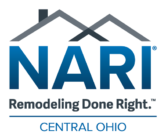Now that the Holiday season is over its time to get back into the swing of things. We may have taken some time off to spend with family and friends, forgetting about those stressors at work. But just as every calendar year comes to an end, so do the Holiday’s and it’s time to get back to work. Whether we work at home, in an office or out in the field we will re-encounter those stressors. Stress can affect us in many ways, so it is important we identity them.
Below is a short list of stressors that might occur in your workplace.
- Not being able to identify what the stressors are.
- Continually bringing work home effecting our relationship with family and friends.
- Spending too much time at work and not giving yourself enough personal time.
- Poor relationships with coworkers or your supervisor.
- Not having clear and concise expectations.
Some of those stressors at work can contribute to physical or mental issues. Physical problems include migraines, high blood pressure, stomach issues, obesity, poor sleep and even a weakened immune system. Mental problems would include anxiety, difficulty concentrating, depression, low morale, poor attitude and lack of self-confidence. In addition, these stressors may affect our eating habits and contribute to alcohol and drug abuse. Either way, identifying these signs of stress is key to dealing with them.
Regardless of the type of stressors you deal with, let’s look at some tips that may help.
- Track your stressor – It is key to find out which of those stressors are affecting you most. Key an eye on your mental reactions when stressors occur and make note of it. That will help identify them.
- Work and home balance – Try to create boundaries between work and home. You may want to minimize accessing emails at home or not checking the phone during certain hours. Remember, the world will still exist if you don’t reply to an email or answer the phone. Your home should be a place of relaxation.
- Take time to recharge – Taking time to recharge is one key to performing well. Be sure you take time away from work to unwind, use up your vacation days, get a good night’s rest or focus on non-work- engaging activities. Recharging gives you the boost to tackle the next day.
- Learn how to relax – Relaxation techniques come in a variety of styles. Maybe you like to exercise, take a walk, read a book, perform yoga or listen to music. There are many relaxation options, so choose what works best for you.
- Talk with your supervisor – Having a good relationship with your supervisor makes for a good work environment. Open conversations, project updates and discussing challenging issues will help minimize some of those stressors and build a stronger relationship. This relationship is key to getting the necessary support for success in the workplace.
Everyone deals with some form of stress whether at home, in the office or out in the field. The key is how we handle those situations. Even though we may never eliminate stress, there are many ways to handle it. The key is to find out which stress reliever (or combination of) works best for you. Remember, the way you handle stress will affect your quality of life at home and at work.
For more information, please contact Sedgwick’s Andy Sawan at 330.819.4728 or [email protected].


